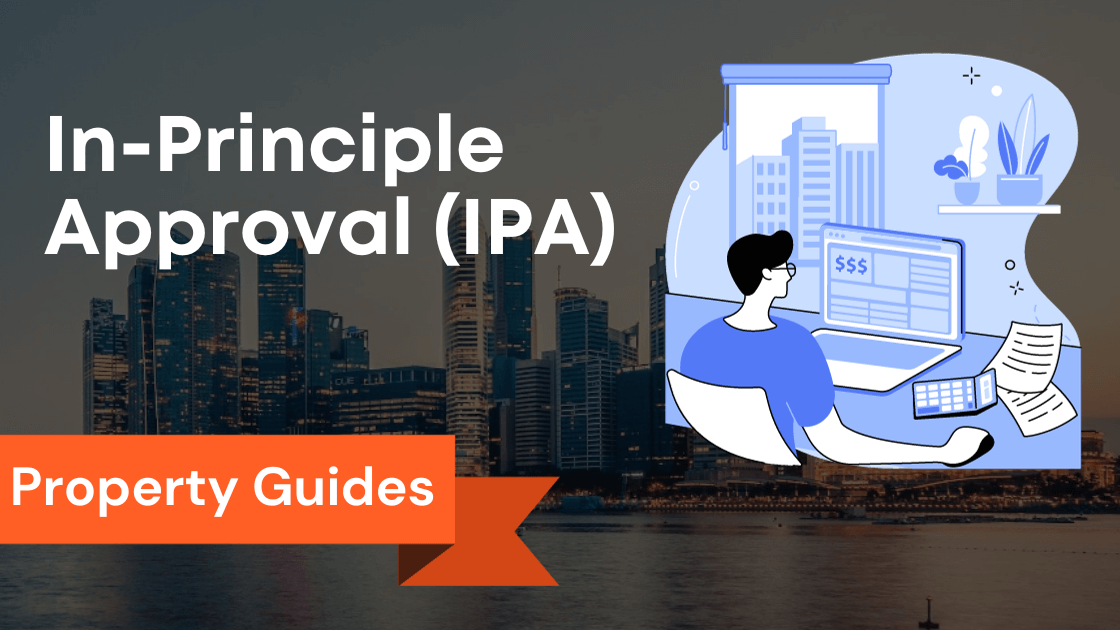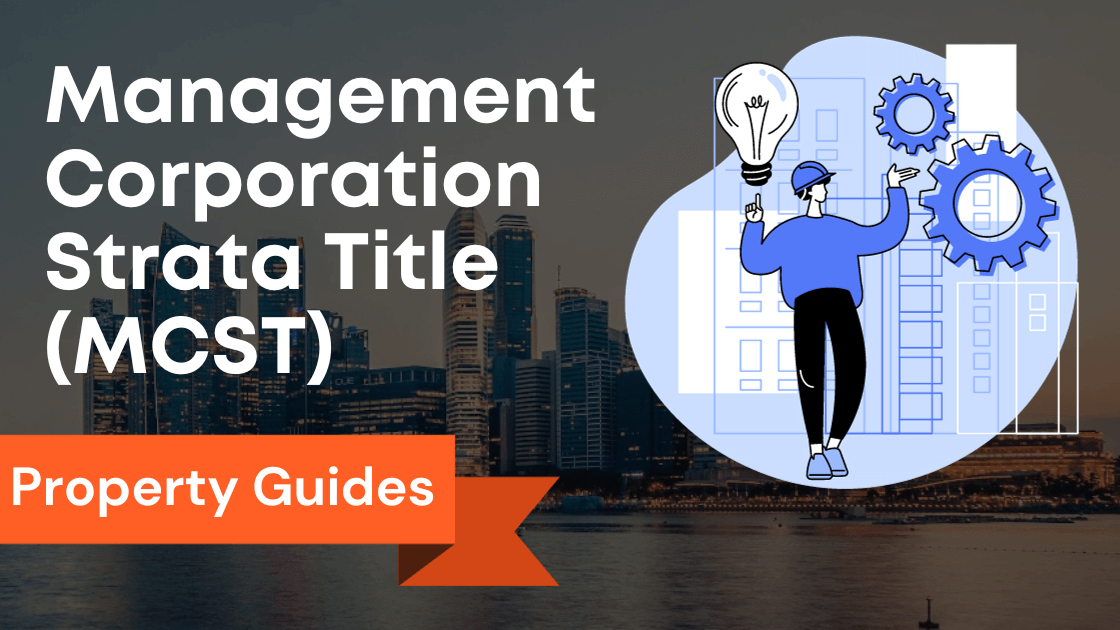
The Qualifying Certificate (QC) is a policy introduced by the Singapore government to regulate the residential property market.
The purpose of the QC is to ensure that developers prioritize Singaporean buyers and to prevent excessive foreign ownership of residential properties in Singapore.
Under the Residential Property Act, any entity or individual that is not a Singapore citizen or Singapore company needs to obtain a QC before they can purchase certain types of residential properties for development.
The QC imposes additional obligations on developers to sell their units to Singaporeans within a specified timeframe.
The Qualifying Certificate (QC) is a regulatory measure implemented by the Singapore government to control foreign ownership of residential properties.
Developers must adhere to the QC requirements and follow the application procedures to ensure compliance.
By understanding the QC and its purpose, developers can navigate the residential property market in Singapore effectively.
Key Takeaways
- What is a QC?
- A Qualifying Certificate (QC) certifies a housing developer’s substantial connection to Singapore.
- It is required for developers intending to develop or sell residential land in Singapore.
- The Singapore Land Authority administers the QC regime.
- Importance of QC in Singapore’s Property Market
- QC ensures that residential properties are primarily owned by Singaporeans or local entities.
- It prevents excessive foreign ownership and helps maintain market stability.
- Foreign developers with QC commitments are subject to Additional Buyer’s Stamp Duty (ABSD) to moderate demand.
- Overview of QC Requirements and Regulations
- Requirements include maintaining a minimum number of issued shares and voting rights.
- Exemption criteria exist for specific cases.
- Terms of residential units must comply with regulations for affordable housing options.
- Eligibility Criteria for QC Application
- Applicants must be Singaporean citizens or companies incorporated in Singapore.
- They must hold at least 50% of shares and voting rights in the applicant company.
- Application Process and Required Documentation
- Submit relevant documents to the Singapore Land Authority (SLA).
- Required documents include proof of substantial shareholding and control of residential property.
- Timeline and Fees Associated with Obtaining a QC
- Processing time varies based on complexity.
- Fees include stamp duty and extension charges if applicable.
- Voting Under QC
- Total voting shares should not exceed 49%, ensuring a balance between Singaporean and foreign shareholders.
- Consequences of Not Complying with QC Regulations
- Non-compliance can lead to penalties, fines, and restrictions on property ownership and transactions.
- Hoarding and speculation in residential land can result in hefty fines.
- Benefits of Holding a QC
- Foreigners can invest in the Singapore property market with a QC, increasing demand and benefiting local developers.
- ABSD still applies to foreigners with a QC.
- Renewal and Extension of QC
- Developers have five years to complete a project; extensions are possible with associated fees.
- Extension fees encourage timely project completion and support a healthy property market.
Introduction to the Qualifying Certificate (QC) and Property Market
For those interested in the property market in Singapore, understanding the requirements and regulations surrounding the Qualifying Certificate (QC) is crucial.
This article will provide an overview of what a QC is, its importance in Singapore’s property market, and the requirements and regulations associated with it.
In reference to the aforementioned criteria, it is imperative to examine the role of Singapore companies or Singapore government entities in the context of votes attached.
The objectives behind the implementation of the Regulatory Practice and Assurance (RPA) bring about essential considerations for both entities.
The QC regime acts as a pivotal element, set forth on the basis of stringent guidelines and standards to ensure accountability and transparency.
It is crucial for companies or Singapore government entities to adhere to this regime in order to maintain the credibility of their operations and uphold public trust.
The objectives of the QC regime, which include promoting fair business practices and safeguarding consumers’ interests, cannot be overstated.
Therefore, it is vital that this regime is implemented with immediate effect to safeguard the integrity of Singapore’s business landscape.
Companies or Singapore government entities must actively engage in this process, ensuring that their applications are submitted in a timely manner to demonstrate their commitment to upholding high standards of business conduct.
What is a Qualifying Certificate (QC)?
A Qualifying Certificate (QC) is a document that certifies a housing developer’s substantial connection to Singapore.
Under the Residential Property Act, housing developers with a substantial interest in the company must obtain a QC for any residential land that they intend to develop or sell.
The Singapore Land Authority is responsible for administering the QC regime.
The QC requirement applies to housing developers, whether local or foreign, who acquire land for development or purchase shares in a company that owns such land.
The purpose of the QC is to ensure that residential properties in Singapore are primarily owned by Singaporeans or local entities.
It helps maintain the stability of the property market and prevents excessive foreign ownership.
Importance of QC in Singapore’s property market
The QC requirement plays a significant role in controlling the residential property market in Singapore.
It ensures that there is a sufficient supply of land available for development and that the market is not dominated by foreign developers.
Foreign developers are subject to Additional Buyer’s Stamp Duty (ABSD), which refers to an additional tax imposed on residential land purchases by entities that are not Singaporean or Permanent Resident.
The ABSD rates vary based on market conditions and help moderate demand.
By requiring foreign developers to obtain a QC, the government ensures that they commit to developing the land and cater to the local market’s needs.
This policy serves to strike a balance between attracting foreign real estate players and protecting the interests of local buyers.
It enables Singapore to maintain a vibrant and sustainable property market.
Overview of QC requirements and regulations
Under the Ministry of Law, the QC regime stipulates several requirements and regulations for housing developers with substantial interest in Singapore.
Listed housing developers with a substantial interest are required to maintain a minimum number of issued shares and voting rights.
Certain housing developers incorporated in Singapore are exempt from the QC requirement.
If a housing developer fails to complete the development within the specified time frame, they may be subject to extension charges.
However, there are exemption criteria, and the Singapore Land Authority may grant approval for exemption based on specific circumstances.
Additionally, the terms of the residential units developed under the QC must comply with regulations that aim to ensure affordable housing options are available to locals.
In summary, the Qualifying Certificate (QC) is an essential component of Singapore’s property market.
It regulates the ownership and development of residential properties by housing developers with a substantial interest in Singapore.
By maintaining control over the market, Singapore can strike a balance between local and foreign players, ensuring a sustainable and inclusive property market.
Obtaining a Qualifying Certificate (QC)

In reference to the following criteria, the QCregime on the basis is established on the basis of the company or class it belongs to.
The QC regime and the objectives aims to ensure the quality and reliability of products or services offered by businesses.
It sets out various objectives of the rpa such as maintaining high standards of quality, fostering consumer confidence, and promoting fair competition in the market.
The QC regime is applicable to all companies operating within Singapore and seeking to uphold their reputation as reliable and trustworthy entities.
Applications may be submitted for participation in the QC regime may be submitted by businesses that meet the prescribed criteria and are willing to comply with the necessary requirements.
One important aspect of the QC regime is the involvement of substantial shareholders who are Singapore citizens.
These individuals play a significant role in the overall governance and decision-making processes of the company.
The largest single substantial shareholder, who is a Singapore citizen, holds a considerable stake in the company and is responsible for the strategic direction and performance of the business.
It is crucial for this substantial shareholder to be Singapore citizens as it helps to ensure local ownership and control, aligning the company’s interests with that of the nation.
The presence of shareholders who are Singapore citizens also strengthens the company’s commitment to contributing to the local economy and society.
By involving substantial shareholders who are Singapore citizens, the company demonstrates its dedication to fostering economic growth, employment opportunities, and social development within the country.
Furthermore, having a substantial shareholder is a Singapore citizen enhances the company’s overall credibility and reputation, as it signifies a deeper level of commitment and accountability to the local stakeholders.
Therefore, the QC regime highlights the importance of substantial shareholders who are Singapore citizens in maintaining the integrity and reliability of businesses operating within Singapore’s jurisdiction.
Singapore company or a Singapore Government
Eligibility criteria for QC application
To apply for a Qualifying Certificate (QC) in Singapore’s property market, there are specific eligibility criteria that need to be met.
The QC regime aims to regulate the ownership of residential properties by foreign individuals and companies.
To qualify for a QC, the applicant must meet the following criteria:
- Being a Singaporean citizen or a company incorporated in Singapore.
- Holding at least 50% of the total shares and voting rights in the applicant company.
- If the applicant is a company, it must have a substantial shareholding in another company that holds residential property in Singapore.
However, there are certain criteria for exemption from QC requirements.
For instance, if the property is acquired by a company listed on the Singapore Exchange, it is exempted from the QC regime.
Additionally, if the property is already covered by a QC and is subsequently sold to another company with substantial shareholding, the QC can be transferred without incurring hefty extension charges.
Application process and required documentation
The application process for a QC involves submitting relevant documents to the Singapore Land Authority (SLA).
The largest single foreign substantial shareholder and the controller of the residential property or land must complete the application form and provide supporting documents.
These documents may include:
- Proof of the substantial shareholding in the applicant company.
- Documents showing the control of residential property or land.
- Evidence of the shares held through nominee companies, if applicable.
In some cases, an application for exemption from QC requirements may be necessary.
This application should be submitted to the Controller of Residential Property, providing the necessary documentation to support the request for exemption.
Timeline and fees associated with obtaining a QC
The timeline to obtain a QC can vary, depending on the complexity of the application and the SLA’s workload. It is advisable to check with SLA for the current processing time.
Fees associated with obtaining a QC include stamp duty, which is payable on the acquisition of the residential property.
The stamp duty rates for residential properties in Singapore are subject to changes from time to time.
Extension fees may also apply if the QC needs to be extended beyond the initial term of five years. These charges can vary depending on the specific project and its circumstances.
Voting under Qualifying Certificate (QC)
When holding a QC, the interest in the total voting shares in the company should not exceed 49%.
This ensures that the majority interest remains with the Singaporean shareholders.
Total voting rights and issued voting shares are attached to all the voting shares in the company, including those held by Singaporean and foreign shareholders.
This mechanism allows for fair and balanced decision-making within the company.
By adhering to the rules and regulations surrounding the QC regime, foreign individuals and companies can navigate the Singapore property market while ensuring that the majority control remains with Singaporean stakeholders.
By understanding the eligibility criteria, the application process, timeline, and voting rules associated with obtaining a QC, individuals and companies can confidently invest and participate in the Singapore property market.
Consequences of not complying with the QC regulations

In the competitive landscape of Singapore’s property market, it is crucial for developers to understand and adhere to the qualifying certificate (QC) regulations.
Failure to comply with these regulations can have serious consequences for developers and investors alike.
Penalties and fines for non-compliance
Failure to meet the QC requirements can result in penalties and fines imposed by government authorities.
The penalties vary depending on the severity of the violation.
In some cases, developers may be required to pay a percentage of the purchase price of the property or face a suspension of their property development activities.
These penalties are designed to discourage speculative behavior and ensure a fair and stable property market.
Hoard and speculate in residential land is another violation that can lead to severe penalties.
Developers who hoard residential land without developing it within a specific timeframe can face fines of up to 100% of the land price.
These penalties aim to prevent land hoarding and encourage developers to actively participate in the development of the property.
Impact on property ownership and transactions
Non-compliance with QC regulations can also have significant implications for property ownership and transactions.
If a developer fails to obtain a QC, ownership of the property may be restricted.
For instance, if the substantial shareholder of a development project is not a Singapore citizen, the developer must apply for a QC, which allows foreign ownership of residential units.
Without a QC, these units cannot be sold to foreigners.
Furthermore, developers who fail to fulfill the QC requirements may face challenges when selling properties.
Potential buyers may hesitate to purchase from developers with a history of non-compliance, as it can create uncertainty about the ownership status and future development of the property.
This can result in lower demand and potentially impact the selling price of the property.
Case studies highlighting the consequences of QC violations
Several case studies have shed light on the consequences of QC violations in the property market.
In some instances, developers with substantial shareholders who are not Singapore citizens have been found to have a record of development projects left unfinished.
This can lead to negative perceptions and lower confidence in the developer’s ability to deliver on promised projects.
The luxury market has also been impacted by QC violations.
Developers who fail to comply with QC regulations in luxury projects may face difficulties selling the units, as foreign buyers are a significant target market for such properties.
The lack of a QC restricts foreign ownership, limiting the pool of potential buyers and potentially affecting the overall profitability of the project.
In conclusion, complying with the qualifying certificate regulations is essential for developers operating in Singapore’s property market.
Failure to do so can result in penalties, restrict property ownership, and negatively impact property transactions.
Developers must be aware of the consequences of QC violations to maintain trust, uphold the integrity of the market, and ensure a level playing field for all participants.
Benefits of holding a Qualifying Certificate (QC)

Access to the Singapore property market for foreigners
Foreigners who wish to invest in the Singapore property market can benefit from holding a Qualifying Certificate (QC).
Under the Residential Property Act, foreigners are generally not allowed to purchase certain types of properties without approval from the Singapore Land Authority (SLA).
However, with a QC, they are exempted from this restriction.
To apply for exemption, the foreign shareholder of the company must hold at least 50% of the shares and have total control over the company.
By holding a QC, foreigners can freely purchase residential properties such as condominium units, landed properties, and strata-titled hotel rooms.
This benefit not only provides opportunities for foreign investors to enter the vibrant Singapore property market, but it also benefits local property developers by increasing demand and driving economic growth.
It’s important to note that while the QC allows foreigners to purchase properties, it does not exempt them from the Additional Buyer’s Stamp Duty (ABSD).
The ABSD is a tax levied on homebuyers, including foreigners, purchasing residential properties in Singapore.
However, for foreigners who obtain a QC, the ABSD is non-remittable, meaning it cannot be refunded.
Renewal and Extension of the Qualifying Certificate (QC)

The Qualifying Certificate (QC) is an important requirement for listed housing developers with substantial foreign shareholdings to develop residential properties in Singapore.
However, there are certain exemptions from the QC regime for developers with a substantial connection to Singapore.
Let’s take a closer look at the renewal and extension process for the Qualifying Certificate.
Renewal process and timeline
When a housing developer is granted a Qualifying Certificate, they have five years to complete the development of the residential property.
However, if they are unable to complete the development within this timeframe, they can apply for an extension of time.
The extension charge payable is 8% of the land purchase price for the first year, increasing by 2% each subsequent year.
The maximum extension charge is 24% of the land purchase price.
It is important to note that the extension of time for the Qualifying Certificate is subject to the prevailing conditions in the residential property market.
If the market conditions are unfavorable, the Singapore government may grant a longer extension period to allow developers to complete their projects.
Conversely, if the market conditions are favorable, the government may shorten the extension period to encourage developers to complete their projects sooner.
Considerations for extension fees
The extension fees for the Qualifying Certificate can be hefty, especially for developers who require additional time to complete their projects.
However, it is important to consider the extension framework put in place by the Singapore government.
The extension fees serve as a mechanism to encourage developers to complete their projects within the stipulated timeframe.
It also helps to maintain a healthy and vibrant residential property market in Singapore.
In some cases, developers may face challenges due to an uncertain business environment or unforeseen circumstances.
The extension fees may seem burdensome, but the Singapore government understands the importance of supporting developers in completing their projects.
Therefore, developers can discuss their circumstances with the relevant authorities and seek appropriate solutions or alternatives to manage the extension fees.
In conclusion, the renewal and extension of the Qualifying Certificate play a crucial role in the development of residential properties in Singapore.
While the extension fees can be substantial, they serve as an important mechanism to ensure the timely completion of projects and maintain a vibrant property market.
Developers with a substantial connection to Singapore can work with the government to manage extension fees and navigate any challenges they may face in the process.
Conclusion
Summary and recap of the QC regime and its exemptions
In conclusion, the Qualifying Certificate (QC) regime in Singapore is a regulation that requires housing developers with substantial connections to apply for a QC when purchasing residential land for development.
The purpose of the QC is to ensure that developers actively develop the land and sell the units within a certain time frame.
However, certain housing developers are exempted from the QC regime.
These exemptions include Singapore companies or government entities, as well as developers who have a substantial connection to Singapore.
The exemption aims to align the QC regime with the objectives of the Residential Property Act (RPA) and facilitate the growth and development of the real estate industry in Singapore.
To qualify for exemption from the QC regime, the housing developer must meet specific criteria.
These criteria include having a substantial interest in at least 5 issued shares in the company, with voting rights attached.
Additionally, the substantial shareholders must be Singapore citizens or companies controlled by the Singapore government.
The exemption from the QC regime can be seen as a positive development for housing developers and stakeholders in Singapore.
It reduces regulatory burden and allows developers to focus more on their core business activities.
It also encourages foreign investors to participate in the real estate market, boosting economic growth and creating more opportunities in the industry.
Impact of the exemption on housing developers and stakeholders
The exemption from the QC regime has several benefits for housing developers and stakeholders.
Firstly, it simplifies the process of acquiring residential land and reduces the administrative requirements for developers.
This streamlines the development process and allows developers to bring new projects to the market more efficiently.
Secondly, the exemption encourages more foreign investment in the real estate sector.
Foreign developers are now more incentivized to invest in Singapore, as they are no longer constrained by the QC requirement.
This injection of foreign capital can boost the local economy and create job opportunities in the construction and related industries.
Lastly, the exemption provides more flexibility for developers to manage their projects.
Without the need to meet the strict timelines set by the QC regime, developers can adapt to market conditions and adjust their development plans accordingly.
This flexibility allows developers to optimize their resources and deliver quality projects that meet market demand.
In conclusion, the exemption from the qualifying certificate regime for certain housing developers in Singapore is a positive development that benefits both developers and stakeholders.
It enables the industry to thrive and contribute to the overall growth of the Singapore economy.
This exemption was granted based on a careful assessment of several key criteria.
The criteria included factors such as the high standard of governance and transparency displayed by Singapore companies, as well as the significant contributions made by the Singapore government in fostering a conducive business environment.
The exemption also takes into account the strong track record of Singapore companies and government entities in complying with relevant regulations and standards.
This decision reflects the confidence and trust placed in Singapore as a global business hub.
It acknowledges the country’s commitment to upholding strong corporate governance practices and promoting business integrity.
The exemption from the QC regime will further enhance Singapore’s attractiveness to companies and investors, reaffirming its status as a premier business destination in the region.
The government and Singapore companies will continue to work together to uphold the highest standards of corporate governance and business ethics.
Frequently Asked Questions
What is a qualifying certificate (qc)?
A qualifying certificate (qc) refers to a certificate issued by the Singapore government that imposes certain conditions on housing developers with a substantial connection to Singapore. It is a requirement for developers who do not meet specific criteria to obtain a qc when they purchase residential land for development.
Who is considered a housing developer with a substantial connection?
A housing developer with a substantial connection is a developer that is considered a Singapore company or has significantly Singaporean substantial shareholding interest, voting rights, and issued shares. These criteria determine whether a developer needs to obtain a qualifying certificate (qc) when purchasing residential land.
What is the purpose of the qualifying certificate regime?
The qualifying certificate regime is implemented to ensure that housing developers, especially those with a substantial connection to Singapore, contribute to the local housing market. It sets conditions on developers to prevent speculation and ensure that residential land is developed and sold within a certain time frame.
Are there any exceptions to the qualifying certificate regime?
Yes, there are exceptions to the qualifying certificate regime. Publicly listed housing developers are generally exempted from the requirement to obtain a qualifying certificate. However, they still need to meet certain criteria to qualify for exemption.
What are the criteria for publicly listed housing developers to be exempted from the qualifying certificate regime?
Publicly listed housing developers in Singapore may be exempted from the qualifying certificate regime if they meet specific criteria. These criteria include being listed on the Singapore Exchange and having a substantial connection to Singapore, among other requirements.
What is meant by a substantial connection to Singapore for publicly listed housing developers?
A publicly listed housing developer is considered to have a substantial connection to Singapore if it is incorporated in Singapore and has the majority of its issued shares held by Singapore companies or the Singapore government.
Does a housing developer need a qualifying certificate if it purchases residential land for development but is not considered a Singapore company?
Yes, a housing developer that is not considered a Singapore company or does not have a substantial connection to Singapore will be required to obtain a qualifying certificate (qc) when it purchases residential land for development.
How does a housing developer obtain a qualifying certificate?
To obtain a qualifying certificate (qc), a housing developer needs to apply to the relevant government agency responsible for the implementation of the qc regime. The application process involves providing necessary information and documents to demonstrate the developer’s eligibility.
What happens if a housing developer fails to meet the conditions imposed by the qualifying certificate regime?
If a housing developer fails to meet the conditions imposed by the qualifying certificate regime, the developer may be subject to penalties or fines. The relevant government agency will monitor the development progress and compliance with the qc requirements to ensure timely completion and sale of residential units.
How does the qualifying certificate regime align with the government's objectives for the housing market?
The qualifying certificate regime is designed to align with the government’s objectives for the housing market by controlling the ownership and development of residential land. It aims to prevent speculation, ensure timely development, and promote the availability of housing units for sale to Singaporeans and permanent residents.












